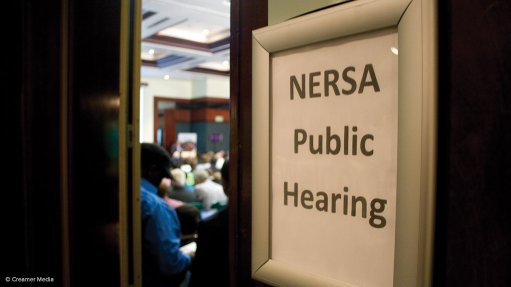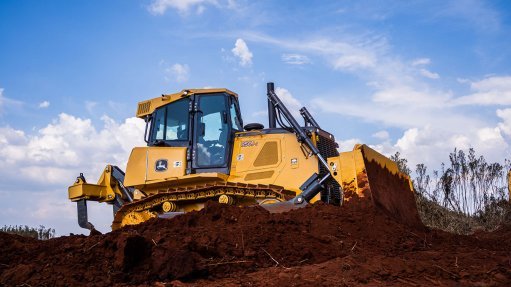Fleets hit as toll bills increase 30%, fuel prices 73%
A company with a 3 000-strong fleet of vehicles, based mainly in Gauteng, this year paid between R400 000 and R500 000 a month extra on its toll fee bill, owing to the start of e-tolling on the Gauteng freeway network at the end of last year, said Standard Bank fleet management head Dr David Molapo on Wednesday.
Some companies operating fleets mainly in Gauteng had seen their toll bills increase by as much as 30% this year.
Speaking in Johannesburg, Molapo noted that 59% of the fleet vehicles under Standard Bank’s management had been registered for e-tolling, and 32% of its customers.
The bank’s fleet customers, however, were not only based in Gauteng.
Molapo said e-tolling introduced added complexity to fleet management, as it required detailed reporting to monitor spending, and to differentiate between private and business mileage.
He added there was a lack of appreciation on the magnitude of costs involved, in general, in owning and running a vehicle in South Africa.
A Volkswagen Polo, for example, retailed at R224 800, but total cost of ownership over 48 months ran at R318 817, with payments making up 53% of this number, fuel 33%, maintenance 12% and tyres 2%.
Increases in the price of fuel, the biggest single operating expense in fleet management, had seen the average fuel cost per transaction of Standard Bank fleet customers increase from R515 in January 2010, to R890 in April 2014.
This was a 73% increase, pushing the average cost of running a vehicle to more than R4 000 a month.
In the current environment of rapidly rising costs, only fleet managers who increased efficiency would stay afloat, emphasised Molapo.
Although the cost of maintenance had not shot up as sharply as fuel costs, it was still under heavy inflationary pressure.
Standard Bank statistics showed that the average maintenance bill for a vehicle currently stood at R3 600, up 26% from 2010.
With all the expenditure associated with large corporate operations, one would expect vehicles in smaller operations to operate more efficiently, but the opposite was true, added Molapo.
Statistics showed that large fleets ran their vehicles more cost-effectively because they had dedicated and focused fleet managers.
In smaller fleets, where the management of the fleet was not seen as central to the core function of the company, the cost of running the fleet was routinely underestimated, and the fleet management function was often left to junior staff members. As a result, many opportunities for improving fleet performance were missed.
Large fleets were also often equipped and willing to spend money in order to save money, said Molapo.
“The wide range of solutions available to fleet managers require an initial investment, such as driver training, telematics and crucially, the appointment of dedicated managers who are able to analyse the huge amounts of data generated by fleet management systems and telematics.”
There were also a number of simple, affordable ways to improve efficiencies without making large investments, said Molapo.
“One of the most recent fleet management innovations is transaction authorisation, which is available to all fleet card users.”
Standard Bank’s transaction authorisation, which required every purchase with a fleet card to comply with up to 30 different criteria before it was authorised, had already blocked R273-million worth of suspect transactions during 2013.
Only R41-million of the blocked transactions were subsequently approved by fleet managers, meaning that well over R200-million worth of pilfering and fraudulent transactions were prevented by Standard Bank’s transaction authorisation system, said Molapo.
The criteria used to determine fraudulent transactions ranged from whether the fuel purchased was more than the tank capacity of the vehicle, to whether a minimum time period had lapsed before the card was used for the next fuel transaction.
Comments
Press Office
Announcements
What's On
Subscribe to improve your user experience...
Option 1 (equivalent of R125 a month):
Receive a weekly copy of Creamer Media's Engineering News & Mining Weekly magazine
(print copy for those in South Africa and e-magazine for those outside of South Africa)
Receive daily email newsletters
Access to full search results
Access archive of magazine back copies
Access to Projects in Progress
Access to ONE Research Report of your choice in PDF format
Option 2 (equivalent of R375 a month):
All benefits from Option 1
PLUS
Access to Creamer Media's Research Channel Africa for ALL Research Reports, in PDF format, on various industrial and mining sectors
including Electricity; Water; Energy Transition; Hydrogen; Roads, Rail and Ports; Coal; Gold; Platinum; Battery Metals; etc.
Already a subscriber?
Forgotten your password?
Receive weekly copy of Creamer Media's Engineering News & Mining Weekly magazine (print copy for those in South Africa and e-magazine for those outside of South Africa)
➕
Recieve daily email newsletters
➕
Access to full search results
➕
Access archive of magazine back copies
➕
Access to Projects in Progress
➕
Access to ONE Research Report of your choice in PDF format
RESEARCH CHANNEL AFRICA
R4500 (equivalent of R375 a month)
SUBSCRIBEAll benefits from Option 1
➕
Access to Creamer Media's Research Channel Africa for ALL Research Reports on various industrial and mining sectors, in PDF format, including on:
Electricity
➕
Water
➕
Energy Transition
➕
Hydrogen
➕
Roads, Rail and Ports
➕
Coal
➕
Gold
➕
Platinum
➕
Battery Metals
➕
etc.
Receive all benefits from Option 1 or Option 2 delivered to numerous people at your company
➕
Multiple User names and Passwords for simultaneous log-ins
➕
Intranet integration access to all in your organisation





















